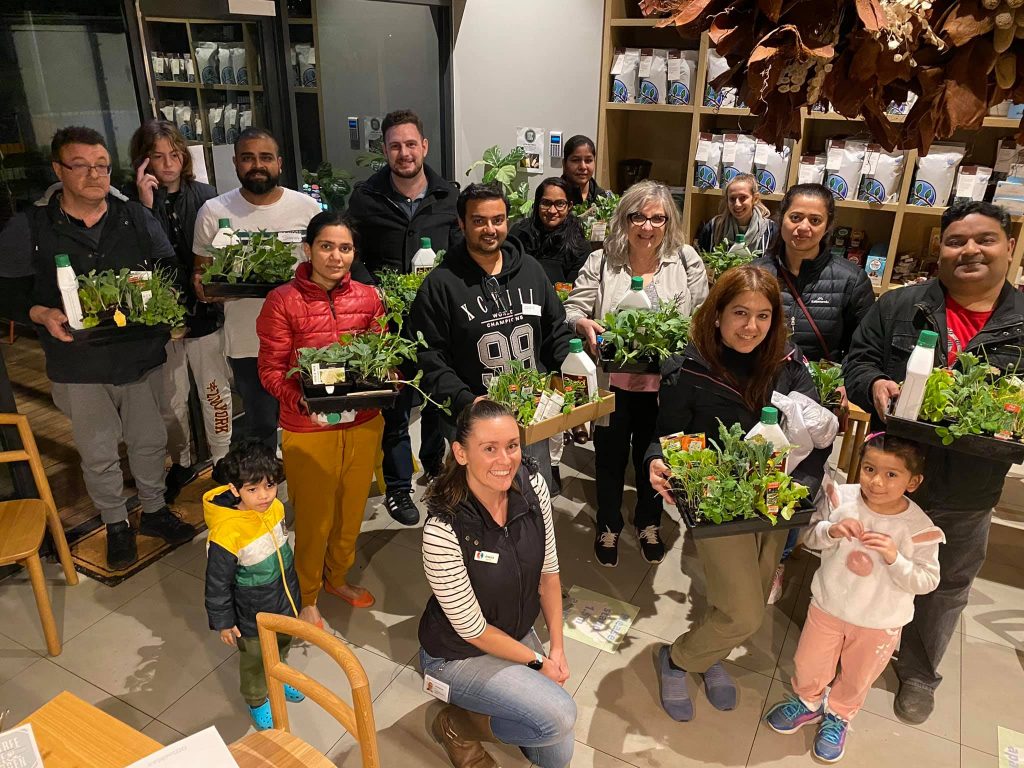Many communities, like ours in western Melbourne, are almost completely reliant on industrial agriculture to grow food; farmers would grow the food, harvest it and load it to carrier vehicles such as planes, trucks or ships where they are taken to distribution centres across the country before making its way to supermarkets to be purchased.
Not only does this huge supply and demand chain negatively impact our world’s climate, food waste and global pollution levels, but it also has a direct effect on families and communities alike—a separation from experiencing and taking part in the growth and consumption of naturally grown foods in our own backyards.
One element of our placemaking work in the City of Melton is bringing communities together to take greater responsibility for their food system. By educating communities on food waste, growing, cooking and preserving, we are hoping to strengthen and empower local neighbourhoods to grow healthy, chemical-free and nutrient-dense food right here where they live.
In early 2021, our newest social enterprise, Eat Grow Garden, built a new veggie patch in a local Aintree early learning centre where my wife, Katie, also works in the Kinder room. It wasn’t a huge surprise for most of the staff to learn that many kids lacked basic knowledge about food. Some were unaware whether a tomato was a vegetable or if it was grown underground or even if it was an animal product! A great number of kids were also wary about eating (or even trying!) vegetables for lunch. However, a shift happened when the children learned how to grow food themselves.
We held a workshop for the kids that taught them how to grow their own garden. Over the next month or two, Katie and her colleagues helped the 4-year-olds tend the garden by watering it and feeding it “worm-wee” from their worm farm. Together they learned the joys of tending a garden as well as learning about how plants use their roots to suck up water and nutrients in the soil.
When it came time to eating salad wraps made with garden-grown lettuce, some non-veg eating kids went back for seconds and even third helpings! And even a bok-choy stir fry was met with wide eyes and open mouths.
A similar community called Magic Harvest, has seen 20 gardeners join together to grow a winter garden at home through monthly educational workshops that taught them how to make the most out of a small space to grow vegetables and to compost for the very first time.

Placemaking programs like these cultivate small food-growing communities in the neighbourhood. Kids are going home and teaching their parents about the joys of growing food naturally with some even encouraging their families to start their own gardens and adults are taking part by sharing their recipes with each other.
Eat Grow Garden has an integral aspect of our placemaking in the community at Aintree, teaching people the joy of working together alongside their neighbour in creating a sustainable, local food system that cares for people, places, and our planet.

